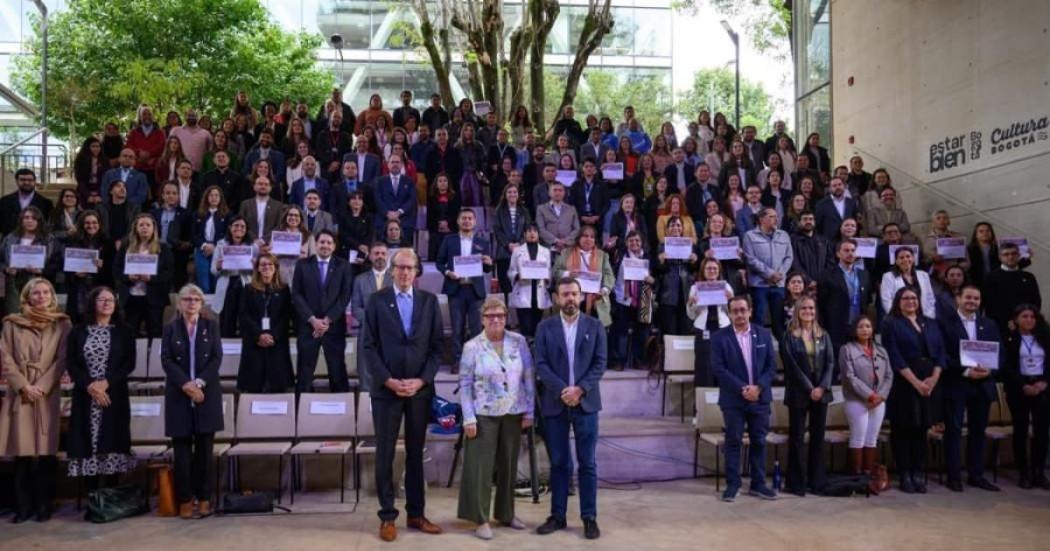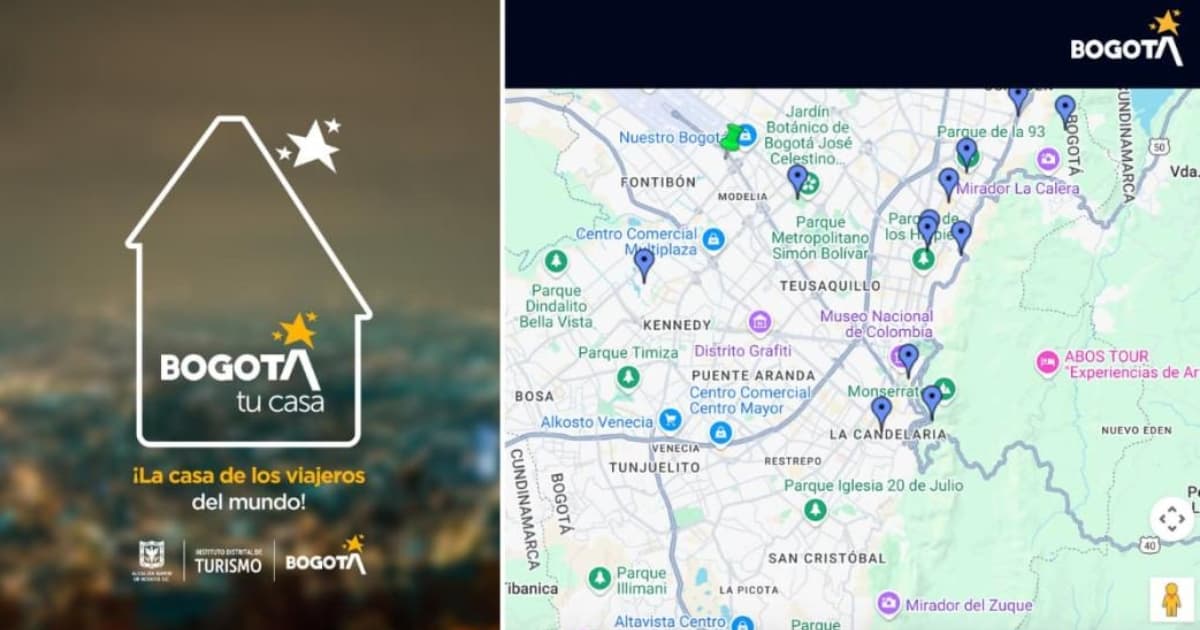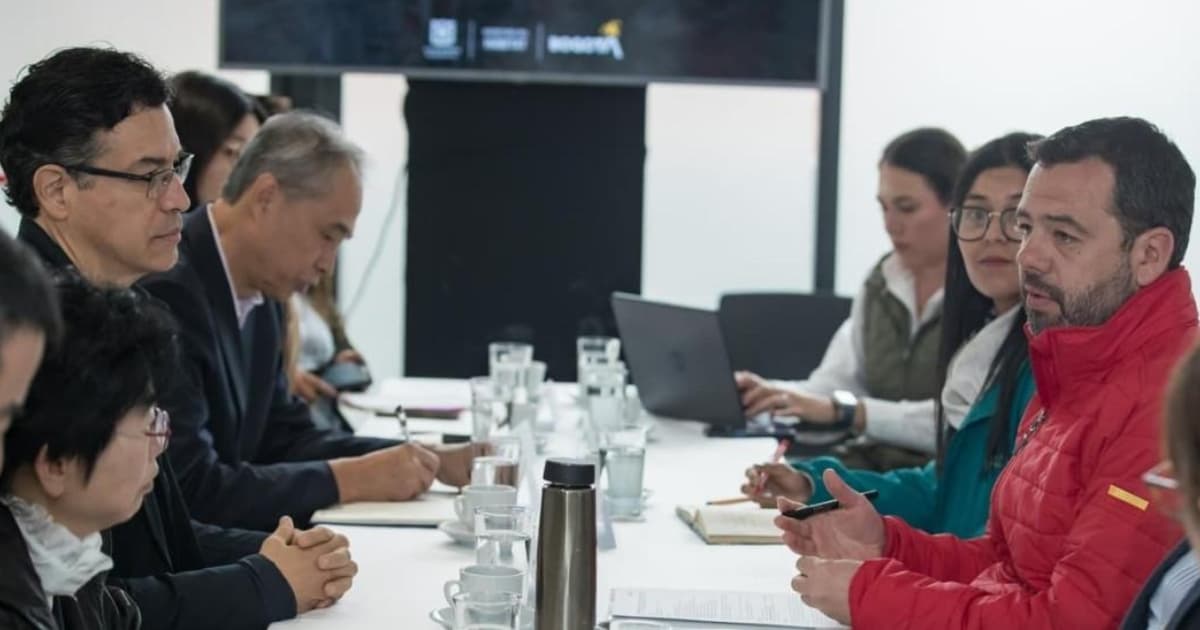Traslated by Andrés Martínez Forero
On June 10, 2025, Bogotá, in partnership with the German Society for International Cooperation (GIZ), presented the results of Iniciativa Bogotá 2.0 (BogotáInitiative 2.0, IB2.0). Bogotá Mayor Carlos Fernando Galán, German Ambassador to Colombia Martina Klumpp, and GIZ Colombia Director Ulrich Höcker, attended the event.
We invite you to learn about: OECD Recognizes Bogotá’s El Dorado Airport for High Sustainability Standards
“One of Bogotá’s greatest strengths is that it brings people together. That’s why I’m honored to be part of this space, where we celebrate how, despite our differences, we can create opportunities, inspire hope, and bring smiles. By embracing diversity, this city shows that we can move forward together,” said Mayor Galán.
He also emphasized that the capital has become home to thousands of people who, from diverse backgrounds and life experiences, work hard to create better futures for their families. He recognized the vital support of international allies and partners who have made this possible.
“Bogotá has been a place to start over. We believe in building a society where everyone has a place. When we talk about migration, we’re talking about people who, out of necessity or renewed hope, chose to pursue their dreams in a new place,” he added.
The event at CEFE highlighted how the project supported the socioeconomic inclusion of more than 73,000 individuals—refugees, migrants, returnees, displaced persons, and others in vulnerable situations living in Bogotá.
Of those, over 67,000 were women and nearly 5,000 identified as LGBTIQ+. They accessed key services and activities aimed at fostering social and economic inclusion. Mayor Galán also noted improvements in neonatal care throughout the city's health networks, thanks to advanced technology and professional training.
German Ambassador Martina Klumpp praised Bogotá’s efforts to welcome and integrate migrants and refugees, especially those from Venezuela.
“The legacy of IB2.0 goes beyond the numbers. It leaves behind built capacities, replicable models, and a successful example of development cooperation with real impact on communities. We must continue moving forward together,” she said.
Bogotá has strengthened maternal care with high-end ultrasound equipment and training programs, improved the diagnosis and treatment of sexually transmitted infections through rapid testing and prevention strategies, and introduced a mobile care model for sex workers. The city also evaluated and enhanced resettlement programs for vulnerable populations and trained more than 2,300 public servants on inclusive service, sexual health, and human rights.
Additionally, over 7,000 people received job skills training—more than 400 are now employed in dignified jobs, and over 500 small businesses have been supported. The initiative also helped 72 civil society and diaspora organizations through integration and migration regularization processes, and developed an information system to track public policy on migrant inclusion.
More details are available on Bogotá’s official X account:
🇨🇴I🇩🇪 En alianza con #GIZColombia y @EmbAlemaniaCOL, el alcalde @CarlosFGalan presentó los logros de Iniciativa Bogotá 2.0, que fortaleció las capacidades de más de 73.000 personas migrantes y desplazadas.
— Relaciones Internacionales Bogotá (@BogotaInter_nal) June 10, 2025
¡Una alianza que refleja lo mejor de la cooperación internacional!
1/3⬇️ pic.twitter.com/85OBWsayHk
GIZ Colombia Director Ulrich Höcker thanked all participating organizations and highlighted the strong collaboration with the city government.
“As a result, we’ve delivered an information system specifically designed to monitor Bogotá’s Public Policy for the Reception, Inclusion, and Development of International Migrants. This will enable more timely and effective decision-making,” he noted.
The event also included a forum where stakeholders from government, civil society, the diaspora, the private sector, and international cooperation shared experiences, lessons learned, and proposals to ensure the sustainability of the initiative’s efforts.
“Bogotá made a conscious decision to welcome and integrate migrants as a city-wide policy—not just a program of a single administration. That’s why this administration has continued and strengthened the work started by previous governments, because what’s at stake is the well-being of thousands of people. The Bogotá 2.0 Initiative is a tangible example of that commitment,” said the mayor.
Don't leave without knowing: Bogotá, among the five best cities in Latin America for conferences and events
IB2.0 was made possible through close collaboration among the Bogotá city government, German cooperation partners, the private sector, and social and diaspora organizations. Together, these partnerships have helped Bogotá move toward becoming a more inclusive, productive, and sustainable city—one where everyone, regardless of origin, can fully exercise their rights and build a dignified life.
*This article was created using information provided by the Bogotá’s International Relations Office and curated by a journalist from Portal Bogotá. For suggestions, questions, or more information, visit Bogotá Te Escucha: https://bogota.gov.co/sdqs/









